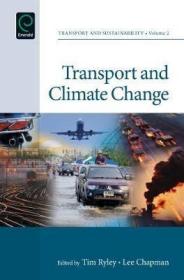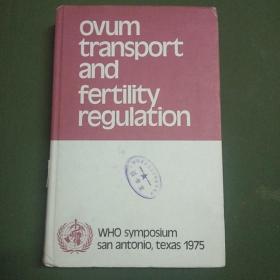
现货Transport and Climate Change[9781780524405]
¥ 1788 九五品
库存2件
作者Ryley, Tim ; Chapman, Lee
出版社Emerald Group Publishing
ISBN9781780524405
出版时间2012-07
装帧精装
纸张其他
页数312页
正文语种英语
上书时间2023-08-07
- 最新上架
商品详情
- 品相描述:九五品
- 商品描述
- Transport accounts for 23% of global carbon dioxide emissions and is one of the few industrial sectors where emissions are still growing. There is a pressing need for transport to begin reducing emissions to mitigate the impacts of climate change. The world is already committed to some degree of climate change and there is an additional need to adapt transport networks to cope with the future climate. This book examines the relationship between transport and climate change at a range of scales and from a series of different perspectives. The complex post-Kyoto international situation is covered before the discussion at national and then regional levels. It is clear that every country needs strong national policy to deliver the required greenhouse gas emission reductions. The UK has been the first country to implement a legally binding agreement to reduce greenhouse gas emissions. This book uses a range of UK examples to provide a timely record of progress to date in meeting the demands of the agreement in terms of the mitigation of climate change. The importance of climate and socio-economic scenarios forms the basis of a series of additional discussions on climate change adaptation, underlining the need for a holistic framework to tackle climate change in the transport sector.|This topical volume covers the intersection between transport and climate change, with papers from the 'Transport & Climate Change' session of the RGS-IBG conference in London, September 2010. It considers the role of transport modes at varying spatial dimensions and a range of perspectives on the relationship between transport and climate change.
相关推荐
-
![现货 Transport and Surface Phenomena[9780128189948]](https://www0.kfzimg.com/sw/kfz-cos/kfzimg/17733071/3a763a17e0cf05c2_s.jpg)
现货 Transport and Surface Phenomena[9780128189948]
九五品上海
¥ 1515.00
-
![现货Transport and Children's Wellbeing[9780128146941]](https://www0.kfzimg.com/sw/kfz-cos/kfzimg/17733071/62948a66358e5237_s.jpg)
现货Transport and Children's Wellbeing[9780128146941]
九五品上海
¥ 1053.00
-
![现货Phonon Focusing and Phonon Transport[9783110670394]](https://www0.kfzimg.com/sw/kfz-cos/kfzimg/17733071/db2a48ba16f94148_s.jpg)
现货Phonon Focusing and Phonon Transport[9783110670394]
九五品上海
¥ 1466.00
-
![现货 Livestock Handling and Transport [op][9781786390523]](https://www0.kfzimg.com/sw/kfz-cos/kfzimg/17733071/0a8eb95abe7b893c_s.jpg)
现货 Livestock Handling and Transport [op][9781786390523]
九五品上海
¥ 632.00
-
![现货Handbook on Transport and Development[9780857937254]](https://www0.kfzimg.com/sw/kfz-cos/kfzimg/17733071/7745c7d2684bc91c_s.jpg)
现货Handbook on Transport and Development[9780857937254]
九五品上海
¥ 2394.00
-
![现货Sustainable Logistics (Transport and Sustainability)[9781784410629]](https://www0.kfzimg.com/sw/kfz-cos/kfzimg/17733071/8008e5a6d4cfab14_s.jpg)
现货Sustainable Logistics (Transport and Sustainability)[9781784410629]
九五品上海
¥ 1548.00
-

ovum transport and
八品昆明
¥ 30.00
-
![现货 Urban Transport Planning: Theory and Practice[9781682854433]](https://www0.kfzimg.com/sw/kfz-cos/kfzimg/17733071/d48745002502538a_s.jpg)
现货 Urban Transport Planning: Theory and Practice[9781682854433]
九五品上海
¥ 1263.00
-
![现货Sustainable Urban Transport (Transport and Sustainability)[9781784416164]](https://www0.kfzimg.com/sw/kfz-cos/kfzimg/17733071/1bdc75c499f392cb_s.jpg)
现货Sustainable Urban Transport (Transport and Sustainability)[9781784416164]
九五品上海
¥ 1582.00
-
![现货Geographies of Transport and Ageing (2018)[9783319763590]](https://www0.kfzimg.com/sw/kfz-cos/kfzimg/17733071/2ed860ea5ec36619_s.jpg)
现货Geographies of Transport and Ageing (2018)[9783319763590]
九五品上海
¥ 1265.00
— 没有更多了 —
![现货Transport and Climate Change[9781780524405]](https://www0.kfzimg.com/sw/kfz-cos/kfzimg/17733071/a23e7066d28c0aa1_b.jpg)

![现货Materials and Technologies of Modern Production[9783036401683]](https://www0.kfzimg.com/sw/kfz-cos/kfzimg/17733071/5fd2824531e165d7_s.jpg)
![现货Introduction to Container Ship Operations and Onboard Safety[9781032155425]](https://www0.kfzimg.com/sw/kfz-cos/kfzimg/17733071/58b7ff43ef7909ee_s.jpg)
![现货Electrophosphorescent Materials and Devices[9789814877343]](https://www0.kfzimg.com/sw/kfz-cos/kfzimg/17733071/18cc1d77bcb7b488_s.jpg)
![现货Organic Semiconductors for Optoelectronics[9781119146100]](https://www0.kfzimg.com/sw/kfz-cos/kfzimg/17733071/24c85a750c708964_s.jpg)
![现货Advances in Food Rheology and Its Applications[9780081004319]](https://www0.kfzimg.com/sw/kfz-cos/kfzimg/17733071/e0c11603c9119d4d_s.jpg)
![现货Advanced Materials and Sustainable Technologies[9783035727562]](https://www0.kfzimg.com/sw/kfz-cos/kfzimg/17733071/dced675333874c48_s.jpg)
![现货Advanced Materials and Manufacturing Engineering II[9783035712681]](https://www0.kfzimg.com/sw/kfz-cos/kfzimg/17733071/660ccfae75fa8d3e_s.jpg)
![现货Materials in Machinery and Construction[9783035718119]](https://www0.kfzimg.com/sw/kfz-cos/kfzimg/17733071/6f402060775e9daa_s.jpg)
![现货Cereal Grain Quality (Softcover Reprint of the Original 1st 1996)[9789401071772]](https://www0.kfzimg.com/sw/kfz-cos/kfzimg/17733071/f93ca1c96a97403a_s.jpg)
![现货Transport and Climate Change[9781780524405]](/dist/img/error.jpg)
以下为对购买帮助不大的评价